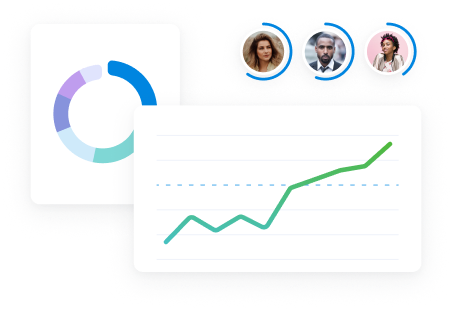As Scoro makes the transition to a 4 day workweek, we’re homing in on seven key focus areas in order to optimize our existing processes. In this post, we’re taking a closer look at Well-being.
Though a key objective of the 4 day workweek will be to enhance our team’s happiness and overall health, we want to go one step further. We want to set our team to be as happy and healthy as possible ahead of the launch. And we want to lay a solid foundation for success and take a proactive approach – one that will make the transition smoother and continue to benefit our employees well into the future.
Prioritizing well-being for future success
The cornerstone of Scoro’s success is our team. When living a balanced life, you tend to be happier, healthier and more productive. We want our team members to have the opportunity to enjoy life more and it is no secret that one of the positive side effects to it, is higher motivation and productivity at the workplace. In fact, workplaces that don’t contribute to wellness reduce levels of productivity by 17.5%. It’s because we don’t believe there are quick fixes to improve mental health and well-being. We want to be as proactive as possible, reduce turnover rates, and attract the best talent. And we can achieve this by building solid well-being initiatives ahead of the transition.
Outlining our objectives
While the switch to a shorter work model will improve employee well-being in itself (i.e., greater work-life balance, increased flexibility, and an extra day to recharge) we believe it’s really important to focus on a handful of key initiatives, and then ensure we optimize them for future success.
To help us achieve this, we’ve drawn up a clear set of objectives that will be used to create a ‘next-steps’ strategy. Our employees are the ones who will be directly affected by the initiatives we implement and since it’s our goal to enhance their well-being, getting their insight is priceless. Based on employee feedback, our objectives are to:
- Ensure the team’s well-being while being as efficient as possible
- Be proactive in our approach to well-being and mental health
- Promote healthy workplace habits
- Create a culture of holistic well-being (placing an onus on physical, mental, emotional, and social well-being)
Our roadmap to success
To help us meet our well-being objectives, we have developed our roadmap to success. This includes:
- Helping our team members to learn more about healthy habits: through training sessions, company-wide challenges, sharing best practices, articles, podcasts etc.or example, eating healthily, regular exercise, proper sleep.
- Internal Well-being Champions to support and motivate the team when implementing healthy habits: our own team members who are passionate about healthy lifestyle and eager to help others by being positive role models.
- Destigmatizing mental health: Spotlighting the topic of ‘well-being’ as a whole and making clear to the team that it’s okay to speak up about how they feel and seek help.
- Listening to our employees: Keeping the communication transparent and encouraging people to share their concerns and challenges. Taking their input into consideration and ensuring Scoro’s values align with their own.
- Leveraging Work Management Software tools: Using our work management software to automate tasks and ease our employees’ workloads, giving them time to focus on what’s most important and have a greater sense of purpose at work.
- Healthy workplace initiatives: Bringing in workplace initiatives that elevate employee well-being (employee recognition program, self-development opportunities, team-building activities).
Measuring progress
In order to gauge the impact that the 4 day work week has on employee well-being, we need to regularly measure our outputs. This will enable us to scope out areas that are performing particularly well and those that need improvement.
We will measure our progress through:
Staff surveys: Gathering regular feedback from employees via surveys on employee well-being and what they think about current policies and initiatives (i.e., using Scoro’s Monthly Happiness Survey to gauge sentiments).
People data: Regularly analyzing the level of absences and turn-over rates – these are all indicators of how effective our initiatives are and whether they are making a difference.
1:1s: Scheduling regular 1:1s with employees to get a better understanding of their well-being and work happiness.
Preparing for challenges
Unlike some of our other focus areas, Well-being is a slightly more complex squad to monitor and improve. While we can definitely bring in new initiatives to enhance employee well-being (encourage walking meetings, taking regular breaks, increasing awareness about work ergonomics etc, ) – it’s up to our team members to make the choices. By normalizing conversations around well-being and mental health – alongside our new initiatives – we’re confident we’ll be able to transition into the 4 day workweek smoothly and empower our employees to be the best version of themselves.
We will continue to share updates on the progress of our Well-being squad as we transition into a 4 day workweek. Read more on why Scoro has chosen to implement a 4 day work-week here.




